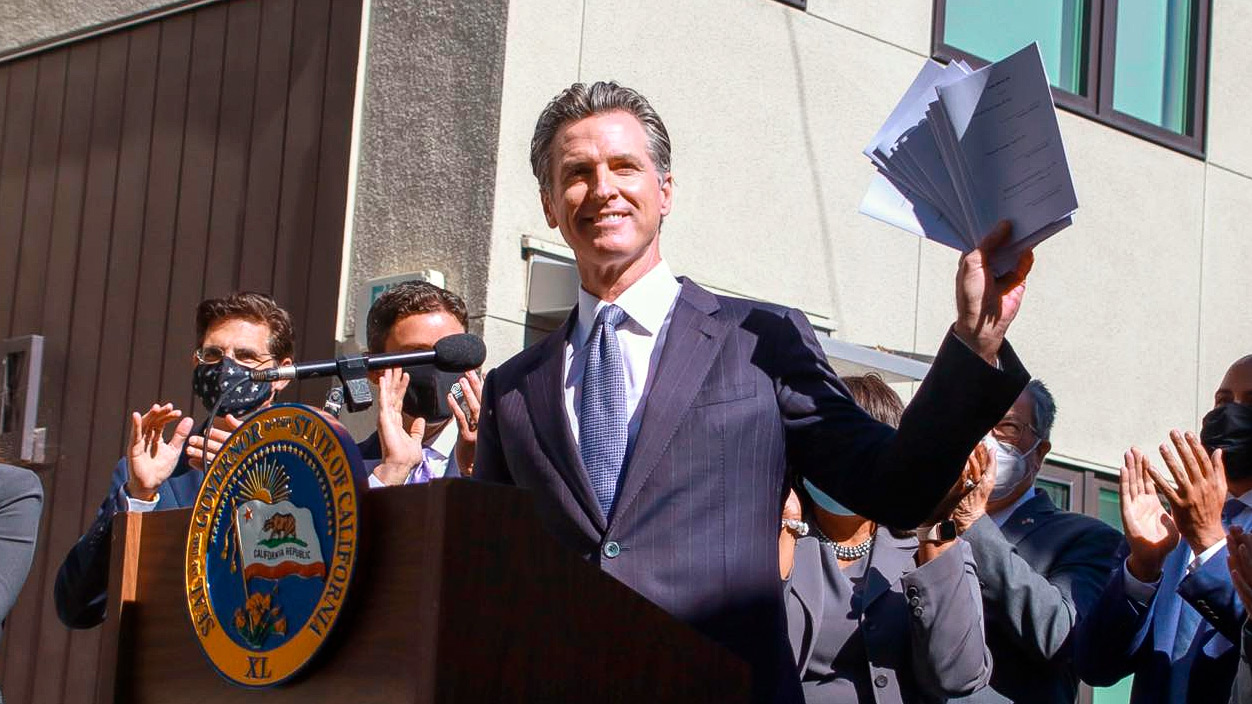California Governor Gavin Newsom signed into law Wednesday a bill that would exempt two tribal gaming projects from review under the California Environmental Quality Act (CEQA).
Senate Bill 900, introduced by state Sen. Melissa Hurtado, D-Sanger, and co-authored by Assemblyman Rudy Salas, D-Bakersfield, ratifies gaming compacts between the state of California and two tribes —the Santa Rosa Rancheria Tachi Yokut Tribe, and the Middletown Rancheria Band of Pomo Indians. These compacts were agreed upon in March this year.
The new law classifies the two compacts as non-projects for the purposes of CEQA, which ordinarily requires that developments undergo detailed environmental reviews that can invite public scrutiny, as reported by The Bakersfield Californian.
“For decades the Tachi Yokut Tribe has been a valuable partner in the Kings County Community,” Hurtado said in a press release. “The tribe provides scholarship assistance, job training and adult education programs, health and welfare assistance and other social services. I am pleased that the Tachi Yokut Tribe will receive the recognition they deserve.”
The Tachi Yokut tribe’s chairman, Leo Sisco, said in the release: “On behalf of the Tachi Yokut Tribe, I would like to thank both Gov. Newsom and Sen. Hurtado for leading the effort to pass our tribal-state gaming compact. We are pleased to continue our role as a positive economic force in the local community while maintaining the important opportunities and resources for our members, many of which are made possible by our gaming enterprise.”
The compacts are the culmination of a lengthy negotiation process between all parties and consideration of requirements under the Indian Gaming Regulatory Act, Ninth Circuit Court of Appeals precedent, and technical guidance, as well as prior compact approvals and procedures issued by the United States Department of the Interior.
According to the Governor’s office, the compacts will support tribal investment in expanded services, local jurisdictions, and non-profit and civic organizations for improved fire and emergency medical services, law enforcement, public transit, education, among other improvements. The compacts also reflect “a commitment by the tribes” to support the Revenue Sharing Trust Fund and the Tribal Nation Grant Fund “so that the economic benefits of gaming extend to all tribal governments in California.”
Both tribes, by signing the compacts, have entered into a “tribal-state class III gaming compact” pursuant to the Indian Gaming Regulatory Act. The agreements build upon existing compacts signed by the tribes and the state in 1999.
The Middletown Rancheria of Pomo Indians currently operates the Twin Pine Casino and Hotel in Middletown, pursuant to the 1999 compact. The venue features 25,000 square feet of gaming space with over 500 machines and table games offerings. It also has a hotel with over 59 rooms, including 3 luxury suites, and dining and entertainment offerings.
Meanwhile, the Santa Rosa Rancheria Tachi Yokut Tribe operates the Tachi Palace Hotel & Casino in Lemoore, which first opened as Southgate Bingo Palace in 1983. The tribe took over operation of the bingo hall in 1994 and expanded its offerings, and renamed it to its current title in 2005. In late April, Tachi Palace Casino announced a variety of upgrades and renovations to the gaming floor, food court, and other areas. New tabletop slot games on the third floor overlook the main gaming floor, with a server walkway for beverages, and bingo was set to return to Tachi Palace in their new facility the Yokut Hall which will seat up to 1200 players.
Meanwhile, California is heading to a November ballot dispute between a coalition of tribes who back sports betting legalization only at tribal casinos, whose proposal already qualified for the election; versus an initiative that would legalize online and mobile sports gambling in California, backed and funded by major online gambling operators DraftKings, BetMGM, FanDuel, Bally’s Interactive, WynnBET, among others, which has recently gathered enough signatures. Counties must now verify the number of signatures, and the California Secretary of State has until June 30 to formally qualify the measure.



